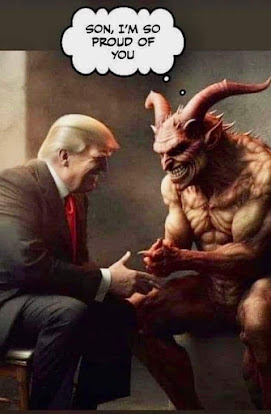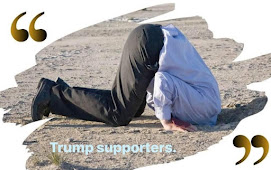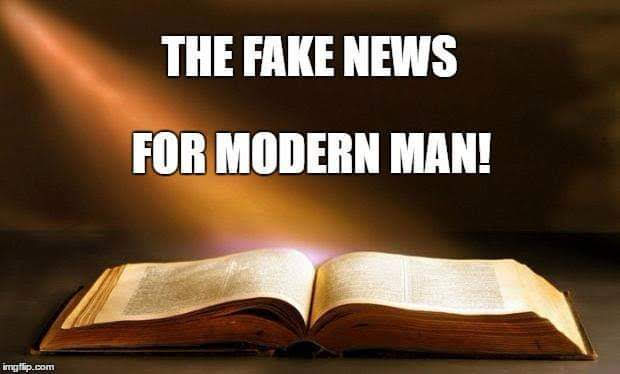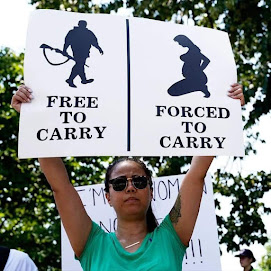So now we're selling $6 billion + in arms/weapons to Taiwan? Well, military hardware and weapons of death is just about all that America produces today, besides porn and rap music.
The U.S. - "the beacon of hope and freedom" - is the #1 seller of weapons in the world. It is truly one of the few industries we have left. We'll sell weapons to both sides of a military conflict, if the money is good.
It's no surprise that China is pissed about the Taiwan sale. Tell me how selling arms to Taiwan is in the U.S. national security interest, unless by national security interest we mean, "Hey, it's the only industry we have LEFT, people!" It seems to me that we should not rattle China's cage very much. After all, they hold a couple of trillion dollars of our debt. They could probably foreclose on us in a heartbeat, but then we wouldn't be able to buy their cheap, lead-laden goods. Oh wait, we don't have any money left anyway! Oy, what a mess.
U.S. Arms for Taiwan Send Beijing a Message
By HELENE COOPER
Published: January 31, 2010
WASHINGTON — For the past year, China has adopted an increasingly muscular position toward the United States, berating American officials for the global economic crisis, stage-managing President Obama’s visit to China in November, refusing to back a tougher climate change agreement in Copenhagen and standing fast against American demands for tough new Security Council sanctions against Iran.
Now, the Obama administration has started to push back. In announcing an arms sales package to Taiwan worth $6 billion on Friday, the United States leveled a direct strike at the heart of the most sensitive diplomatic issue between the two countries since America affirmed the “one China” policy in 1972.
The arms package was doubly infuriating to Beijing coming so soon after the Bush administration announced a similar arms package for Taiwan in 2008, and right as tensions were easing somewhat in Beijing and Taipei’s own relations. China’s immediate, and outraged, reaction — cancellation of some military exchanges and announcement of punitive sanctions against American companies — demonstrates, China experts said, that Beijing is feeling a little burned, particularly because the Taiwan arms announcement came on the same day that Secretary of State Hillary Rodham Clinton publicly berated China for not taking a stronger position on holding Iran accountable for its nuclear program.
While administration officials sounded a uniform public note, cautioning Beijing not to allow this latest tiff to damage overall relations, some administration officials suggested privately that the timing of the arms sales and the tougher language on Iran was calculated to send a message to Beijing to avoid assumptions that President Obama would be deferential to China over American security concerns and existing agreements.
“This was a case of making sure that there was no misunderstanding that we will act in our own national security interests,” one senior administration official said. A second Obama administration official, also speaking on the condition of anonymity because of the sensitivity of the issue, said pointedly: “Unlike the previous administration, we did not wait until the end of our administration to go ahead with the arms sales to Taiwan. We did it early.”
But larger questions remain about where the Obama administration is heading on China policy, and whether the new toughness signals a fundamentally new direction and will yield results that last year’s softer approach did not.
Beyond the wars in Afghanistan and Iraq, management of the American relationship with China is one of Mr. Obama’s biggest foreign policy challenges. Flush with cash, China’s economy is growing mightily, and China has become one of the biggest foreign lenders to the United States. China also is an increasingly critical American trading partner and a global rival in influence and economic power.
“The president’s view is that obviously we have to have a mature enough relationship with China that we can be candid and firm where we disagree and cooperate forcefully when we agree,” a senior administration official said. He insisted that the timing of the arms package and Mrs. Clinton’s tough words were “not designed to send a gratuitous message to China, but to demonstrate the firmness of our position.”
China has a history of getting off to a tough start with American administrations. President Bill Clinton alienated Beijing with tough talk on human rights, even signing an executive order that made renewal of trade privileges for China dependent on progress on human rights. But Mr. Clinton reversed himself in 1994, saying that the United States and China would move forward faster on issues of mutual concern if Beijing was not isolated.
Similarly, President George W. Bush’s first dealings with the Chinese were also fractious, including an effort to recover American airmen whose spy plane was forced down off the Chinese coast.
“The Obama administration came in exactly the opposite,” said Steven Clemons, director of foreign policy programs at the New America Foundation. “They needed China on economic issues, climate change, Iran, North Korea. So they came in wanting to do this lovely dance with China, but that didn’t work.”
Instead, China pushed back hard, including at the Copenhagen climate change summit meeting in December, when Beijing balked at American and European demands that China agree to an international monitoring system for emissions targets. Twice, the Chinese prime minister, Wen Jiabao, sent an underling to represent him at meetings with Mr. Obama, in what diplomats said was an intentional snub. Mr. Obama later had to track down Mr. Wen, surprising him and appearing at the doorway of a conference room where Mr. Wen was meeting with the leaders of South Africa, Brazil and India.
The United States and China eventually reached a compromise on the monitoring agreement, but the whole incident left a bad taste in the mouths of many Obama administration officials, who believed China had deliberately set out to belittle Mr. Obama, and who were determined to push back and reassert American authority.
“The Chinese,” said James J. Shinn, who was assistant secretary of defense for Asia during the Bush administration, “now seem to have a palpable sense of confidence that they’re more in the driver’s seat than two years ago, across a whole range of issues.”
For Mr. Obama, the arms sale to Taiwan, which China considers a breakaway province, may be only the first of many instances this year in which he will run afoul of Beijing.
Some foreign policy experts said that the administration now seemed intent on poking at the sovereignty issues that have long been China’s Achilles’ heel. Mrs. Clinton noted on Friday that Mr. Obama would soon be meeting with the Tibetan spiritual leader, the Dalai Lama — a meeting that White House officials put off last summer to avoid alienating Beijing in advance of Mr. Obama’s China trip. China regards the Dalai Lama as an advocate of Tibetan independence.
“China is feeling very confident these days, but the one thing that the Chinese freak out about consistently are sovereignty issues,” said Mr. Clemons of the New America Foundation. “So anything related to Taiwan or Tibet will get them going.”
Added to that, the administration has been championing Internet freedom recently, another source of public tension with Beijing. China’s government is embroiled in a fight with Google over that company’s complaints about Internet censorship and hacking attacks it says originated in China.
But the tougher American positions do not change the fact that Mr. Obama needs Chinese cooperation on a host of issues. Beyond his efforts to rein in Iran’s nuclear ambitions, the president is also working with Beijing on similar ambitions in North Korea.
And Mr. Obama announced in his State of the Union address last week that he planned to double American exports in the next five years, an ambitious goal that cannot be met unless he somehow persuades China to let its currency appreciate, making Chinese products more expensive in the United States and American products more affordable in China.
The original is here.
Never pass up a chance to sit down or relieve yourself.
-old Apache saying
Subscribe to:
Post Comments (Atom)
He's always watching

























No comments:
Post a Comment